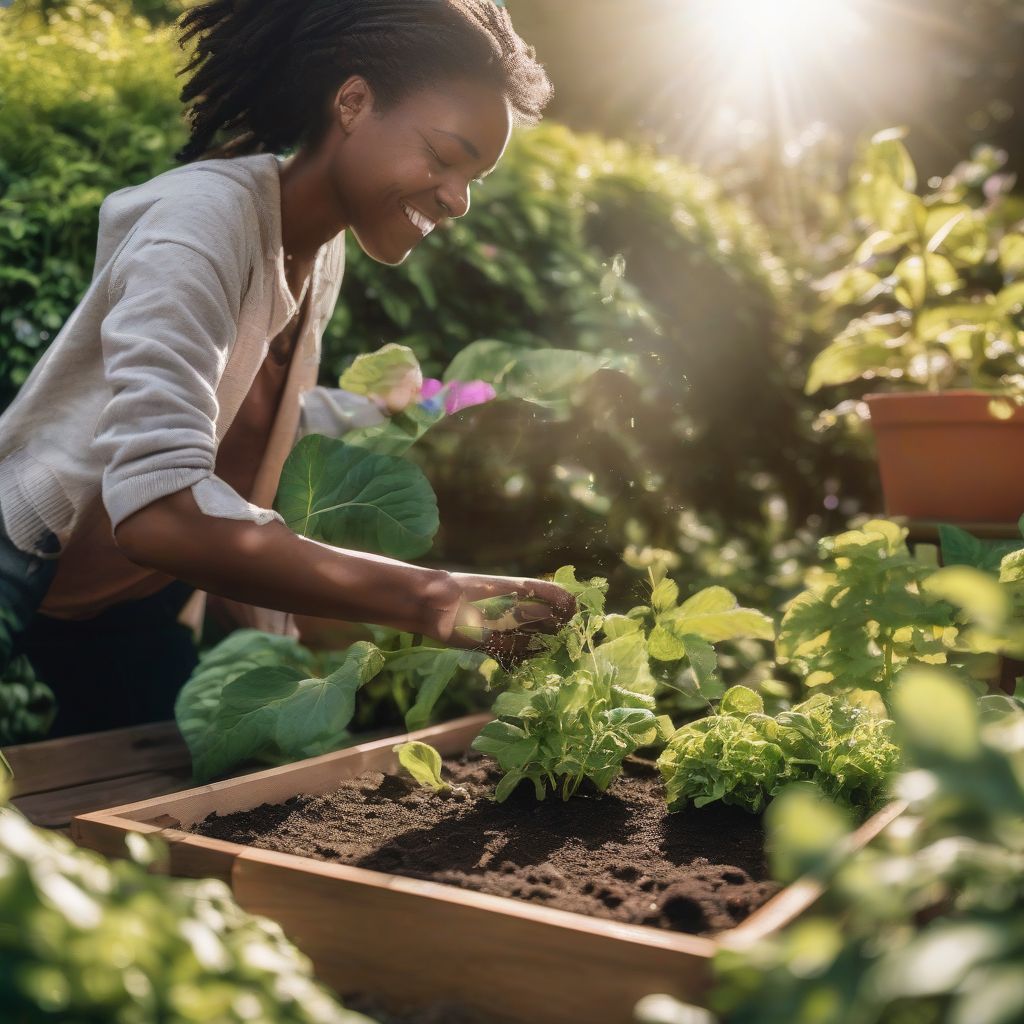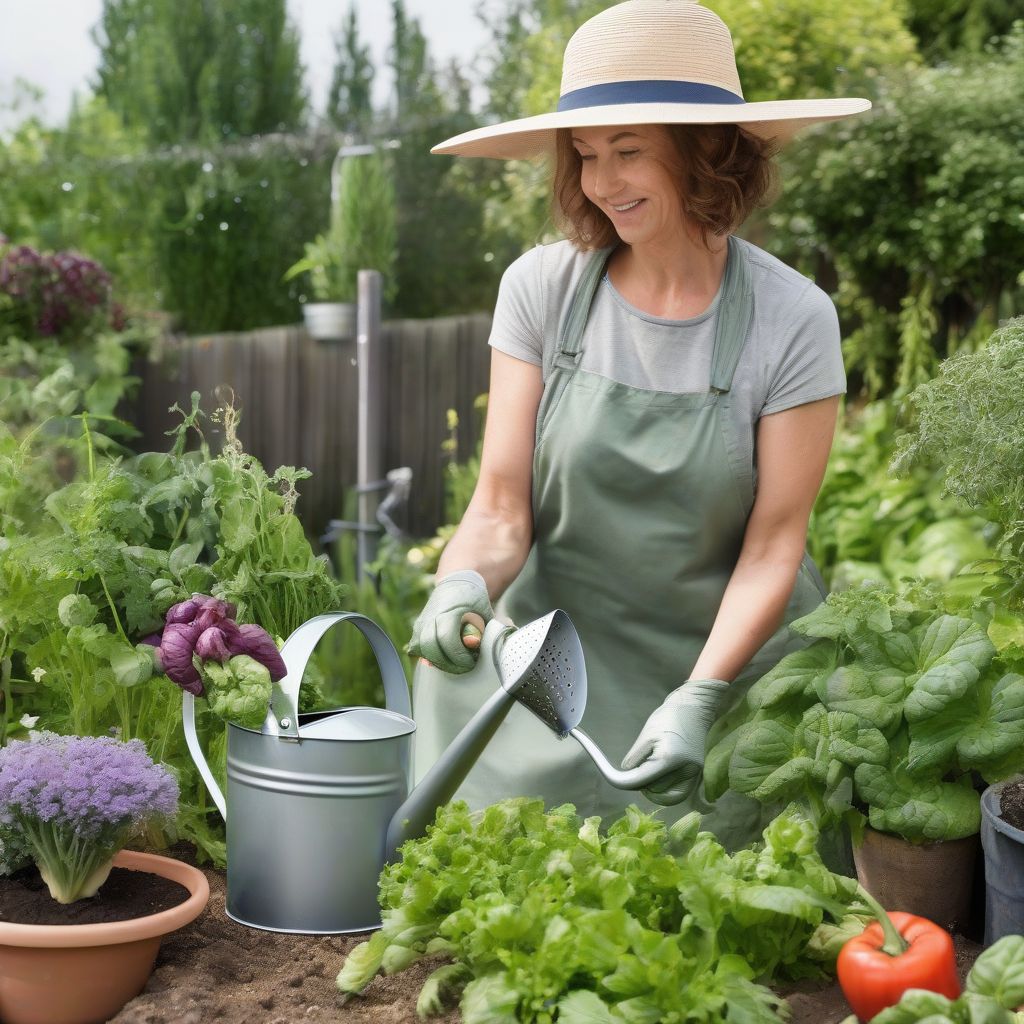Have you ever dreamt of plucking a sun-warmed tomato straight from the vine or biting into a crisp lettuce freshly picked from your backyard? Growing your own food is incredibly rewarding, and with a focus on sustainability, it can also be incredibly beneficial for both your health and the environment. Whether you have a sprawling backyard or a sunny balcony, this guide will provide you with practical tips to create a thriving and sustainable food garden.
Understanding Sustainable Gardening
Before we dive into the tips, let’s understand what makes a garden sustainable. It’s all about working with nature, not against it. This means:
- Conserving Resources: Using water, energy, and other resources wisely.
- Protecting Biodiversity: Attracting beneficial insects, birds, and other creatures to your garden.
- Reducing Waste: Composting kitchen scraps and garden waste to create nutrient-rich soil.
- Avoiding Harmful Chemicals: Opting for natural fertilizers and pest control methods.
 Planting Seeds in Raised Garden Bed
Planting Seeds in Raised Garden Bed
Practical Tips for Your Sustainable Food Garden
1. Plan Your Garden Space
- Sunlight: Most edible plants need at least 6 hours of direct sunlight per day. Observe your yard and choose the sunniest spot.
- Soil: Healthy soil is the foundation of a productive garden. Get a soil test to understand its pH and nutrient levels.
- Water Access: Ensure easy access to water for irrigation. Consider a rain barrel to collect rainwater.
2. Choose the Right Plants
- Start Small: Begin with easy-to-grow vegetables like lettuce, spinach, radishes, and herbs.
- Grow What You Love: Focus on your favorite fruits, vegetables, and herbs to stay motivated.
- Consider Your Climate: Select plant varieties suitable for your region’s climate and growing season.
3. Practice Crop Rotation
- Prevent Soil Depletion: Rotating crops each season helps prevent soil-borne diseases and pests while balancing nutrient levels.
- Follow a Simple Rotation: A good rule of thumb is to rotate between these plant families: legumes (beans, peas), brassicas (cabbage, broccoli), nightshades (tomatoes, peppers), and roots (carrots, beets).
4. Embrace Companion Planting
- Deter Pests Naturally: Planting certain species together can repel pests. For example, marigolds deter aphids, while basil repels mosquitoes and flies.
- Attract Beneficial Insects: Plant flowers like cosmos, zinnias, and sunflowers to attract pollinators and beneficial insects that prey on garden pests.
 Woman Watering Her Garden with Watering Can
Woman Watering Her Garden with Watering Can
5. Water Wisely
- Water Deeply and Less Frequently: Encourage deep root growth and conserve water.
- Use Mulch: Apply a layer of organic mulch, like straw or wood chips, to retain moisture, suppress weeds, and regulate soil temperature.
6. Compost, Compost, Compost!
- Turn Waste into Garden Gold: Composting kitchen scraps and garden debris creates a nutrient-rich fertilizer for your plants.
- Start a Compost Bin: You can easily make your own compost bin or purchase a ready-made one.
7. Go Organic with Pest Control
- Encourage Natural Predators: Attract ladybugs, lacewings, and other beneficial insects that feed on common garden pests.
- Use Natural Solutions: Neem oil, insecticidal soap, and diatomaceous earth are effective and eco-friendly pest control options.
8. Save Seeds for Next Year
- Embrace Seed Saving: Collecting seeds from your healthiest plants allows you to save money and preserve unique varieties.
- Store Seeds Properly: Store dried seeds in a cool, dark, and dry place to ensure their viability for the following year.
[amazon bestseller=”seed-starting-supplies”]
Conclusion
Growing your own food in a sustainable garden is a rewarding journey that connects you with nature, nourishes your body, and benefits the planet. By implementing these tips, you can create a thriving garden that provides fresh, healthy produce while minimizing your environmental impact.
Remember, every step you take towards sustainable gardening, no matter how small, makes a difference! Do you have any questions or tips to share about sustainable gardening? Share your thoughts in the comments below!
